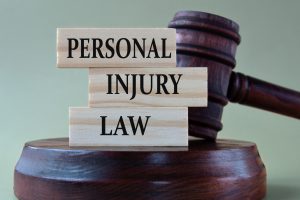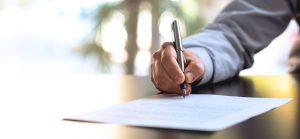Accidents happen, and they can get ugly. But what exactly happens at the accident scene? If you ask any of the unfortunate individuals who had to go through one, they’d tell you that it’s full of confusion, mixed emotions, uncertainty, and a sequence of blurred actions that make it very difficult to understand what’s going on. Drivers start fighting, people start flocking to the scene, and those involved in the accident are at a loss of what they should do.
With the possibility of getting into an accident whenever you hit the road, you should always be prepared for the worst and be ready to act quickly at minimizing your damages. In the unfortunate event that you should ever get into an accident, here’s exactly what you need to do:
1. Check for Injury
Your utmost priority following an accident is to check for injuries. Check your own body for any apparent injuries and check any passengers in the car as well. In case of any life-threatening injuries, you must call an ambulance at once. If you know any first aid measures then apply them, otherwise, make sure to keep the critically-injured in position until help arrives. Some injuries can become permanent with wrong movements, such as spine and neck injuries.
2. Preserve the Accident Scene
Your next focus should be to preserve the scene of the accident as it is. Don’t move the cars or change anything, and don’t let anyone tamper with the scene. It’s important to leave everything as is for the police investigation and insurance procedures. The scene should also be preserved to warn other drivers about the accident that just took place, so make sure to open your flashers and to set up flares.
3. Collect Evidence
After making sure that medical aid is on its way, if need be, and that the scene is preserved, it’s time to scan the scene of the accident. Make sure to collect any evidence you can, this includes taking pictures of the scene, taking witness reports, and exchanging information with the other driver(s) involved in the accident. Preparing an accurate report of your account is also important to get ready to answer any necessary questions.
4. Call the Police
You should always call the police at the scene of an accident, even if the injuries weren’t severe. This increases the credibility of your claim, as you have an unbiased testimony from a police officer. Additionally, some insurance companies may deny you coverage unless there’s an official police report about the accident.
5. Call an Attorney
When accidents result in major losses to humans and property, this multiplies the amount of financial loss that’s about to follow, especially for the at-fault party. In the middle of all of the confusion, other parties and their insurers might try to get you to admit you’re at fault to minimize your claim. Giving a witness report can also go against you if you’re not sure of what to say. In these cases, calling an attorney and explaining your situation, especially if you’re suffering from a personal injury, can help preserve your rights to a great extent. An experienced attorney will guide you as to what to say and do and they’ll make sure that any claims of negligence against you are baseless, ensuring your full rights.
6. Get a Medical Checkup
Sometimes your injuries can surface hours, or even days, following an accident. So even if you’re not complaining about anything at the moment, you need to get a medical checkup. This will also act as evidence in case of severe injuries, and it will be essential to provide medical reports for your injuries once you file a claim and take your case to court.
7.Report to Your Insurer
Once you’re out in the clear, make sure to give your insurers a call. It’s better that they learn about the accident from you, as soon as you can. Your insurance company will discuss with you the benefits covered, which can include medical insurance to cover your costs. They’ll also tell you whether to prepare for legal actions or file a collision claim for the damages.
Accidents happen in a blink of an eye, but their effects can last a long time. To make sure that you minimize all of your damages, you should act quickly. The first priority should be to check for injuries, followed by preserving the scene and collecting evidence. You should get the help of an experienced attorney, especially in case of serious damage. You’ll also have to call the police, get a medical checkup, and update your insurers. Remember not to let your post-crash shock distract you. Follow these steps and protect yourself from unnecessary worries.





















